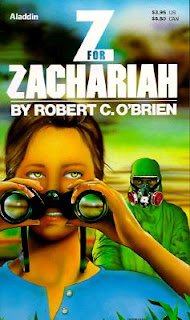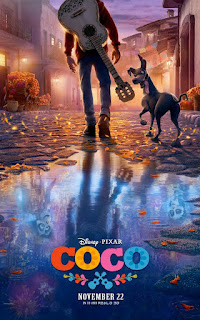Myth in Charles de Lint's Riddle of the Wren
I recently picked up Charles de Lint's Riddle of the Wren because I learned that it was part of Mirriam's inspiration for Paper Crowns (that is, she flipped through, saw the word Wysling, and ran with it). I wanted to see what he'd done with the concept, and when I saw that Cernunnos was also included in the glossary, I knew this book would be worth the read. (Mirriam also asked me to see how the two books compared.)
From the opening pages, this book feels quintessentially de Lint-ish. It has ordinary people who love stories and wild things and the edges of artistic society. There's lyricism in the prose and a sense of wonder and magic pervading the world. The opening chapters felt like something out of the Newford stories rather than something like Harp of the Grey Rose or Wolf Moon, both of which seem to be related to Riddle of the Wren in the sense of de Lint's working old myths and folktales into new works.
RotW works its way into Irish lore about the Tuathan and their enemies, along with those who fall into neither category -- the Grey Gods and their followers, the weren or moor folk. Cernunnos is the lord of this third category, and though (much to my disappointment) he never directly appears in the book, his influence is apparent from the first of Minda's dreams when his servant Jan Penalurick appears to ask for her help.
The contrast between the reality of the Tuathan, Daketh, and Grey Gods and the seeming fabrication of the monotheistic Koevah of Minda's world supports the rest of the book quite well. At first glance the religion of Koevah seems to be a caricature of Biblical monotheism. Koevah's name appears to be a play on Jehovah, and the description of his personality is basically the same reductionist view of God in the OT most people throw around when trying to make out that God hates people. Minda compares her impression of Koevah to the "little gods" found in the illustrations of a book and finds she prefers the little gods. I found myself wondering why she would -- not in the sense of why prefer fauns to a judgmental curmudgeon in the sky, but why prefer something you could refer to as little? The idea of your god or gods fitting in your pocket to be pulled out when you want them and ignored when you don't is a dangerous attitude in any religion, not just Christianity. This isn't Minda's only moment of possibly unsound theology. She also ignores (or is ignorant of) the danger inherent in being visited in her dreams by an aspect of the Horned Lord Cernunnos. It isn't till Wysling Grimbold -- who I lovingly refer to as Gandalf in a Trufflehunter suit -- mentions it that anyone in the story recognizes the potential danger inherent in Minda's dream.
Riddle of the Wren is a passing fair novel. It doesn't shy away from the fact that Minda puts the group in danger several times and admits to the mistakes of the various characters so that none of them appears to be Mary Sue-ish. I think my main disappointments come from what I wanted it to be compared to what it is. I wanted there to be a redemption of myth in this book because I came off of all the discussions about that when I picked this up. I know better than to expect this from de Lint, who tends toward the pagan in his books, but the desire to see a myth redeemed is still there. I wanted there to be a more direct appearance by Cernunnos and the other deities described in the book because I am a fan of the "mythology is true" and "God/gods are real" tropes in fiction. I like books that do this because I see in them a reflection of Christ entering the world and the Story His Father is telling. And RotW doesn't do that in the grand way I prefer. So I'm slightly disappointed in it. The bright side is I now have more material fodder for my books because (in true Inklings fashion) I've seen something that disappoints me and now wish to write it the way it ought to be told.
While the story hits some predictable plot points (the power is within you!), the story is different and intriguing because of its use of multiple worlds, Irish myth, and a diverse cast of characters who, though painted at times in broad strokes, leap off the page whenever they can. If you haven't read any de Lint, this is a book to cut your teeth on. If you've read him before, you'll find this book is at once everything you've come to expect from him and yet not quite all you hoped it would be. I recommend reading it if you're a fan of myths, Charles de Lint, Celtic things, and world-hopping fantasy. Also talking badgers.
*All images found via Pinterest.
From the opening pages, this book feels quintessentially de Lint-ish. It has ordinary people who love stories and wild things and the edges of artistic society. There's lyricism in the prose and a sense of wonder and magic pervading the world. The opening chapters felt like something out of the Newford stories rather than something like Harp of the Grey Rose or Wolf Moon, both of which seem to be related to Riddle of the Wren in the sense of de Lint's working old myths and folktales into new works.
RotW works its way into Irish lore about the Tuathan and their enemies, along with those who fall into neither category -- the Grey Gods and their followers, the weren or moor folk. Cernunnos is the lord of this third category, and though (much to my disappointment) he never directly appears in the book, his influence is apparent from the first of Minda's dreams when his servant Jan Penalurick appears to ask for her help.
The contrast between the reality of the Tuathan, Daketh, and Grey Gods and the seeming fabrication of the monotheistic Koevah of Minda's world supports the rest of the book quite well. At first glance the religion of Koevah seems to be a caricature of Biblical monotheism. Koevah's name appears to be a play on Jehovah, and the description of his personality is basically the same reductionist view of God in the OT most people throw around when trying to make out that God hates people. Minda compares her impression of Koevah to the "little gods" found in the illustrations of a book and finds she prefers the little gods. I found myself wondering why she would -- not in the sense of why prefer fauns to a judgmental curmudgeon in the sky, but why prefer something you could refer to as little? The idea of your god or gods fitting in your pocket to be pulled out when you want them and ignored when you don't is a dangerous attitude in any religion, not just Christianity. This isn't Minda's only moment of possibly unsound theology. She also ignores (or is ignorant of) the danger inherent in being visited in her dreams by an aspect of the Horned Lord Cernunnos. It isn't till Wysling Grimbold -- who I lovingly refer to as Gandalf in a Trufflehunter suit -- mentions it that anyone in the story recognizes the potential danger inherent in Minda's dream.
 |
| Seriously, I waited the whole book for this guy to show up and nada. |
Riddle of the Wren is a passing fair novel. It doesn't shy away from the fact that Minda puts the group in danger several times and admits to the mistakes of the various characters so that none of them appears to be Mary Sue-ish. I think my main disappointments come from what I wanted it to be compared to what it is. I wanted there to be a redemption of myth in this book because I came off of all the discussions about that when I picked this up. I know better than to expect this from de Lint, who tends toward the pagan in his books, but the desire to see a myth redeemed is still there. I wanted there to be a more direct appearance by Cernunnos and the other deities described in the book because I am a fan of the "mythology is true" and "God/gods are real" tropes in fiction. I like books that do this because I see in them a reflection of Christ entering the world and the Story His Father is telling. And RotW doesn't do that in the grand way I prefer. So I'm slightly disappointed in it. The bright side is I now have more material fodder for my books because (in true Inklings fashion) I've seen something that disappoints me and now wish to write it the way it ought to be told.
While the story hits some predictable plot points (the power is within you!), the story is different and intriguing because of its use of multiple worlds, Irish myth, and a diverse cast of characters who, though painted at times in broad strokes, leap off the page whenever they can. If you haven't read any de Lint, this is a book to cut your teeth on. If you've read him before, you'll find this book is at once everything you've come to expect from him and yet not quite all you hoped it would be. I recommend reading it if you're a fan of myths, Charles de Lint, Celtic things, and world-hopping fantasy. Also talking badgers.
*All images found via Pinterest.




Comments
Post a Comment
What do you think?